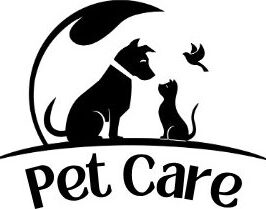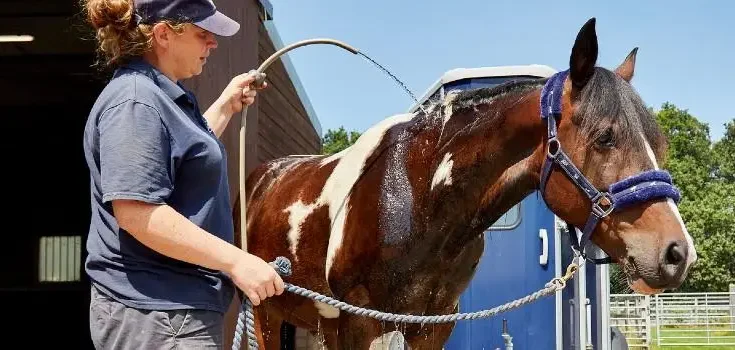Horses and ponies are beautiful, intelligent, and loyal animals. They can become wonderful companions and working partners if cared for properly. Taking care of a horse or pony is not just about feeding them; it’s about keeping them healthy, safe, and happy. Whether you own one horse, a pony, or an entire stable, learning the right way to care for them is very important.
In this guide, we will cover simple and essential steps to care for horses and ponies.
1. Providing Proper Shelter
Horses and ponies need a safe and comfortable place to live. Their shelter should protect them from rain, wind, and extreme heat.
- Stables or Barns: A good stable has enough space for your horse to move around, lie down, and stand comfortably. Keep it dry and well-ventilated.
- Outdoor Shelter: If your horse or pony lives outdoors, make sure there is a shaded area or a run-in shed where they can rest and stay protected from harsh weather.
- Clean Bedding: Use straw, wood shavings, or other safe bedding materials to keep the resting area soft and dry. Clean and replace bedding regularly to prevent infections.
2. Feeding Horses and Ponies
A balanced diet is the key to a healthy horse or pony.
- Forage (Grass and Hay): Horses and ponies mainly eat grass and hay. Fresh grass is ideal, but when it’s not available, provide good-quality hay.
- Grain and Concentrates: Some horses need extra energy, which comes from grains like oats or specially prepared horse feed. Ponies usually need less grain because they gain weight easily.
- Fresh Water: Horses drink a lot of water—sometimes up to 30 liters a day. Always provide fresh, clean water.
- Salt and Minerals: Provide a salt lick or mineral block for additional nutrients.
Tip: Feed them at the same time every day, and never give moldy or spoiled food because it can cause serious health problems.
3. Grooming
Regular grooming keeps your horse or pony healthy and looking good.
- Brushing: Use a curry comb to remove dirt and loose hair, then a soft brush for a smooth finish.
- Hoof Care: Clean their hooves daily with a hoof pick to remove dirt, stones, or manure. Check for cracks or injuries.
- Bathing: Horses don’t need frequent baths, but during summer or after heavy work, you can rinse them with water. Use mild horse shampoo if needed.
- Checking for Injuries: Grooming time is perfect for checking cuts, swelling, or any unusual signs on their body.
4. Exercise and Training
Horses and ponies need regular exercise to stay fit and happy.
- Riding or Lunging: Riding, lunging, or letting them run in a paddock helps keep them active.
- Turnout Time: Horses love to spend time outdoors, grazing and moving freely. Make sure the area is safe and fenced properly.
- Training and Bonding: Spend time training and interacting with your horse or pony. This builds trust and makes handling easier.
5. Hoof and Dental Care
Good hoof and dental care are essential for every horse and pony.
- Farrier Visits: Schedule a professional farrier visit every 6–8 weeks to trim and maintain healthy hooves.
- Shoes or Barefoot: Some horses need shoes for work on hard surfaces, while others can go barefoot. Your farrier can guide you.
- Dental Checkups: Horses’ teeth grow continuously and may develop sharp edges, making chewing difficult. Have a vet check their teeth once or twice a year.
6. Health and Veterinary Care
Keeping your horse or pony healthy requires regular veterinary care.
- Vaccinations: Protect your horse from common diseases like tetanus and influenza with proper vaccinations.
- Deworming: Parasites can harm horses, so follow a regular deworming schedule advised by your vet.
- First Aid: Learn basic first aid for horses, such as treating small cuts or knowing what to do in an emergency.
- Watch for Illness: Keep an eye on signs like loss of appetite, fever, coughing, or lameness, and call the vet when necessary.
7. Hoofing Environment and Pasture Management
- Safe Fencing: Ensure the pasture has strong fencing without sharp edges or holes.
- Remove Hazards: Clear out poisonous plants, trash, or anything sharp that could hurt your horse.
- Rotating Pastures: If you have enough land, rotate grazing areas to keep the grass healthy and reduce parasites.
8. Companionship and Mental Well-being
Horses and ponies are social animals and need companionship.
- Other Horses or Ponies: If possible, keep them with other horses or ponies so they don’t feel lonely.
- Human Interaction: Spend quality time grooming, riding, or just talking to your horse. It helps build a strong bond.
- Toys and Enrichment: Some horses enjoy simple toys like balls or hanging objects that they can nudge and play with.
9. Caring for Ponies – Special Note
Ponies are smaller than horses but are often stronger for their size. They can gain weight quickly and are prone to a condition called laminitis (a painful hoof disease).
- Feed Ponies Less Grain: Stick mainly to grass and hay unless extra energy is needed.
- Exercise Regularly: Ponies can become overweight easily, so make sure they get daily exercise.
- Watch Their Hooves: Ponies’ hooves are small but strong, and they need the same care as horses.
10. Safety Tips
- Always approach your horse calmly and from the side so you don’t scare them.
- Wear proper boots and gloves when handling or riding.
- Never wrap lead ropes around your hand—it can cause injury if the horse pulls away suddenly.
- Learn how to tie a quick-release knot when securing your horse.
Conclusion
Caring for horses and ponies is a big responsibility but also very rewarding. They need proper shelter, food, grooming, exercise, and medical care to stay healthy and happy. Horses and ponies also need love, attention, and companionship to build trust and a strong bond with their owners. If you take the time to care for them properly, they will give you years of loyalty, joy, and unforgettable experiences.

